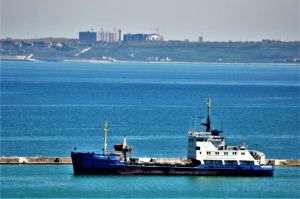The Easter holidays are a real explosion of light and joy for Cypriots, after the Lent (Sarakosti) of Easter, and their preparation begins as early as Maundy Thursday when the eggs are dyed and the famous flaounes, a type of local Easter, are baked in the oven. Flaounes are real cheese-filled pastry delicacies that you really have to try.
Roxana Konstantinou, guide authorized by the Ministry of Tourism of Cyprus, told us: "The cheese is combined with the Greek spice mahlepi and wrapped in dry mint dough, topped with sesame seeds. There are both salty and sweet flaounes, the sweet version containing raisins. A Cypriot proverb says that Easter without flaounes is like a wedding without a gift, because this traditional product is closely related to the celebration of the Resurrection of the Lord. The whole family participates in the preparation of the dish, which at the end is baked in the oven until it gets a fairly consistent crust on top. Although it is a traditional product cooked by every family, tourists can find flaounes in these Easter days at most bakeries".
Also on Maundy Thursday, according to tradition, boiled eggs are dyed red, symbolizing the Blood of Christ on the Cross. The crucifixion of Christ takes place in the evening of the same day, when believers go to church, and during the denia all the icons in the places of worship are covered with black veils.
The next day, on Good Friday, the Epitaph is celebrated in the evening, when Christians bring flowers to the church and decorate the Holy Epitaph. At the end of the prohod service, the young people carry the Holy Epitaph outside the church, a procession takes place in the nearby neighborhood, after which they return with it to the church.
On Holy Saturday, in the evening, the "Lambratzia" takes place, a traditional custom during which an effigy of Judas Iscariot, the one who betrayed Christ for 30 pieces of silver, is burned. Those fires are lit in all the localities of Cyprus and represent a real spectacle, which, however, takes place under the strict supervision of the Police and firefighters.
Roxana Konstantinou told us: "After the "burning of Judas", people go home to prepare for the celebration of the Resurrection of the Lord. At 11 p.m., the churches are full of believers waiting to receive the Light of the Resurrection. All the churches are immersed in darkness, and at midnight the priests come out with the Holy Light from the altar and announce: Christos Anesti (Christ is Risen). Immediately the faithful hit the chairs in the church with their backs, the noise being unique on the whole island and symbolizing the loud noise made by the stone from the Holy Sepulcher at the time of the Resurrection of Jesus Christ. Also then, the black veils covering the icons fall. The whole moment is full of emotion, the noise made by the chairs being hit inside the churches is very loud, which can be heard all over the territory of Cyprus. After that, Alithos Anesti (True is Risen) is answered and the Resurrection Liturgy follows, at the end of which people take home the Holy Light".
Then the whole family gathers for the traditional Easter meal, where they eat a special kind of soup called magiritsa made from lamb organs, scramble red eggs, eat flaounes, roast lamb and drink various alcoholic beverages, but especially wine.
On Monday, the day after Easter, traditional games are organized, such as the egg race (avgoulodromei) - a race in which the competitors try to the finish line not to let the egg on a spoon that they hold between their teeth, the race with sacks (sakoulodromes) - a race in which until the finish line the competitors try to lose as few potatoes as possible from the sack, especially since they have to overcome several obstacles, the donkey race, Ditzimin (the game with lifting weights), Zizyros (Cicada ), tug of war, as well as traditional dance performances. These Easter traditions usually take place in villages and small communities, in churchyards or in squares.























































